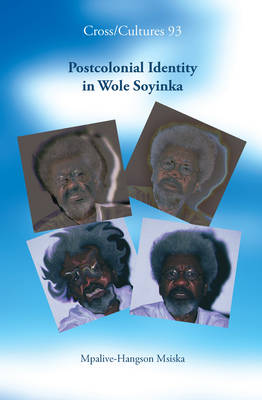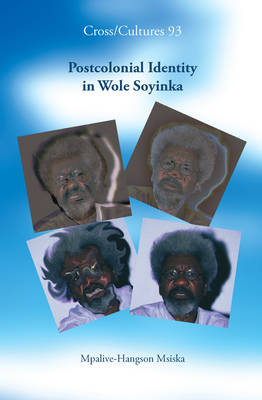
- Retrait gratuit dans votre magasin Club
- 7.000.000 titres dans notre catalogue
- Payer en toute sécurité
- Toujours un magasin près de chez vous
- Retrait gratuit dans votre magasin Club
- 7.000.0000 titres dans notre catalogue
- Payer en toute sécurité
- Toujours un magasin près de chez vous
Description
Soyinka's representation of postcolonial African identity is re-examined in the light of his major plays, novels and poetry to show how this writer's idiom of cultural authenticity both embraces hybridity and defines itself as specific and particular. For Soyinka, such authenticity involves recovering tradition and inserting it in postcolonial modernity to facilitate transformative moral and political justice. The past can be both our enabling future and our nemesis. In a distinctive approach grounded in cultural studies, Postcolonial Identity in Wole Soyinka locates the artist's intellectual and political concerns within the broader field of postcolonial cultural theory, arguing that, although ostensibly distant from mainstream theory, Soyinka focuses on fundamental questions concerning international culture and political identity formations - the relationship between myth and history / tradition and modernity, and the unresolved tension between power as a force for good or evil. Soyinka's treatment of the relationship between individual selfhood and the various framing social and collective identities, so the book argues, is yet another aspect linking his work to the broader intellectual currents of today.
Thus, Soyinka's vision is seen as central to contemporary efforts to grasp the nature of modernity. His works conceptualize identity in ways that promote and modify national perceptions of 'Africanness', rescuing them from the colonial and neocolonial logic of cultural denigration in a manner that fully acknowledges the cosmopolitan and global contexts of African postcolonial formation.
Overall, what emerges from the present study is the conviction that, in Soyinka's work, it is the capacity to assume personal and collective agency and the particular choices made by particular subjects at given historical moments that determine the trajectory of change and ultimately the nature of postcolonial existence itself.
Postcolonial Identity in Wole Soyinka is a major and imaginative contribution to the study of Wole Soyinka, African literature, and postcolonial cultural theory and one in which writing and creativity stand in fruitful symbiosis with the critical sense. It should appeal to Soyinka scholars, to students of African literature, and to anyone interested in postcolonial and cultural theory.
Thus, Soyinka's vision is seen as central to contemporary efforts to grasp the nature of modernity. His works conceptualize identity in ways that promote and modify national perceptions of 'Africanness', rescuing them from the colonial and neocolonial logic of cultural denigration in a manner that fully acknowledges the cosmopolitan and global contexts of African postcolonial formation.
Overall, what emerges from the present study is the conviction that, in Soyinka's work, it is the capacity to assume personal and collective agency and the particular choices made by particular subjects at given historical moments that determine the trajectory of change and ultimately the nature of postcolonial existence itself.
Postcolonial Identity in Wole Soyinka is a major and imaginative contribution to the study of Wole Soyinka, African literature, and postcolonial cultural theory and one in which writing and creativity stand in fruitful symbiosis with the critical sense. It should appeal to Soyinka scholars, to students of African literature, and to anyone interested in postcolonial and cultural theory.
Spécifications
Parties prenantes
- Auteur(s) :
- Editeur:
Contenu
- Nombre de pages :
- 216
- Langue:
- Anglais
- Collection :
- Tome:
- n° 93
Caractéristiques
- EAN:
- 9789042022584
- Date de parution :
- 01-01-07
- Format:
- Livre relié
- Format numérique:
- Genaaid
- Dimensions :
- 155 mm x 235 mm
- Poids :
- 484 g

Les avis
Nous publions uniquement les avis qui respectent les conditions requises. Consultez nos conditions pour les avis.






